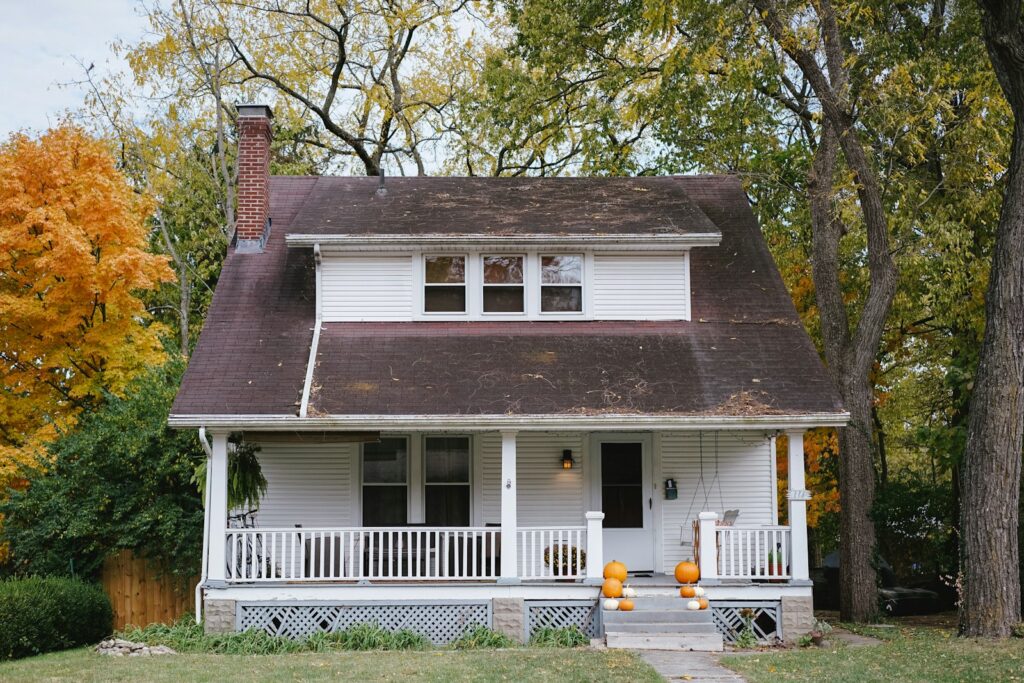
Inheriting a home often conjures images of a significant windfall, a generous gift that bypasses the daunting years of saving for a down payment or the stress of competitive bidding in today’s housing market. As the United States navigates the largest generational wealth transfer in its history, with baby boomers expected to pass down an estimated $84 trillion, approximately $18–19 trillion of which is tied to residential real estate, millions of younger Americans anticipate receiving a parent’s or grandparent’s home. This prospect, on paper, appears to be a transformative opportunity.
However, beneath this seemingly benevolent surface lies a complex financial reality for which many heirs are entirely unprepared. While inheriting a house can indeed be a life-changing opportunity, especially with home prices at record highs and many individuals priced out of the market, the practical and financial realities of homeownership can quickly transform this gift into an overwhelming burden. Without proactive estate planning and candid discussions about the true costs involved, what seems like a blessing can rapidly manifest as surprise expenses, internal family conflicts, and difficult decisions.
This article aims to provide clear, actionable advice by dissecting the critical hidden costs and financial obligations that frequently accompany inherited properties. By shedding light on these often-overlooked expenses, we empower beneficiaries to make informed decisions, preserve their wealth, and navigate the complexities of inherited real estate with confidence and foresight. Understanding these realities is the crucial first step toward ensuring an inherited home remains an asset, not a financial drain.

1. **Outstanding Mortgage Balance and Other Debts**One of the most immediate and substantial financial obligations an heir may face is an outstanding mortgage balance. A mortgage does not automatically disappear when a home changes hands; the lender fully expects payments to continue. If a balance remains on the home loan when the original owner dies, the financial responsibility shifts directly to the inheritor.
An heir who intends to keep the property may explore the possibility of assuming the existing mortgage. However, this outcome is not guaranteed, as it often depends on the specific lender’s policies and the type of loan involved. In many cases, the heir might instead be required to pay off the remaining balance in full, or, more commonly, refinance the loan under their own terms, potentially at a different interest rate and with new qualification requirements.
Beyond the primary mortgage, inherited homes can also carry other forms of debt and financial encumbrances. These might include home equity loans, lines of credit, or even liens resulting from unpaid taxes or legal judgments against the property. These additional debts can significantly increase the financial burden, demanding immediate attention and often substantial capital to resolve. Approximately 23 percent of heirs express worry about the various debts attached to inherited homes, underscoring the prevalence and stress these obligations create.
Such debts can quickly turn an inherited property into a liability rather than a free asset. Instead of receiving a clear gift, heirs may find themselves inheriting a responsibility that necessitates either significant refinancing efforts or, in many instances, the swift liquidation of the property to settle these financial obligations before they escalate further.
Read more about: Smart Borrowing: 12 Common Mistakes to Avoid When Using a Home Equity Line of Credit (HELOC)
2. **Escalating Property Taxes and Reassessment**While a mortgage may eventually be paid off, property taxes are a perpetual and unavoidable cost of homeownership that never truly ends. For heirs, this ongoing expense can represent a significant shock, particularly in states where the assessment rules trigger substantial increases upon inheritance. In some jurisdictions, the home may be reassessed at its current market value after the owner’s death, potentially triggering a steep and unexpected tax increase.
This reassessment process can dramatically inflate the annual tax bill, even if the previous owner paid modest taxes for decades based on an older, lower valuation. Property values have surged across the country, with some areas experiencing increases of 30 to 70 percent in just five years. This surge directly translates into higher tax bills, making the financial impact immediate and often overwhelming for new owners.
Consider the example of an inherited property valued at $12 million in a high-cost area like Tiburon, California. The annual property taxes alone might easily exceed $100,000. If an heir earns an annual income of $80,000, the property tax bill would surpass their entire net income, rendering ownership financially impossible without selling the asset. This stark scenario is not confined to luxury markets; reassessment rules across suburban and rural America mean many heirs are shocked to discover that their new property tax obligations can far exceed their previous monthly rent or mortgage budgets.
Property taxes often become the “first wall heirs hit” because they are non-negotiable and recurrent. Without sufficient liquid assets or income to cover these significantly increased annual costs, the perceived gift of a home can quickly become an insurmountable financial hurdle, forcing heirs to make difficult decisions about the property’s future.
Read more about: Unmasking the Real Expenses: A Comprehensive Guide to Calculating the True Cost of Owning an Older Home

3. **Ongoing Utility and Upkeep Bills**Beyond taxes and mortgages, an inherited home comes with a continuous stream of monthly utility and upkeep bills that demand attention. Services such as water, gas, electricity, and trash pickup must remain active even after the original owner passes away. Cutting these services off completely can lead to severe and costly problems, including frozen pipes in winter, the proliferation of mold in humid conditions, or other permanent damage in extreme cases. Moreover, reconnection fees can be substantial if services are unnecessarily interrupted.
Once the heir takes legal ownership, they become responsible for all these utility expenses, alongside other modern monthly costs like internet and cable services. These bills accumulate relentlessly, whether the property is occupied or sitting vacant. A Bankrate study projects that these often-overlooked ownership costs—encompassing maintenance, utilities, property taxes, home insurance, and internet and cable—could average around $21,000 per year in 2025, depending on the home’s location and size.
These ongoing operational expenses are in addition to any existing mortgage payments, which the study authors caution is merely the starting point of homeownership costs. For first-time homeowners, or those already managing tight budgets, the sheer volume and consistency of these bills can quickly upend financial stability, transforming an inherited sanctuary into a literal money pit. Understanding and budgeting for these recurring costs is critical to avoid financial strain.
It is imperative for heirs to account for these seemingly minor but cumulatively significant expenses from the outset. Neglecting them can not only lead to financial penalties but also contribute to the physical deterioration of the property, further complicating its long-term viability as an asset.
Read more about: Unmasking the Real Expenses: A Comprehensive Guide to Calculating the True Cost of Owning an Older Home

4. **Unforeseen Maintenance and Major Repair Costs**Inheriting a home often means inheriting its entire maintenance history, or lack thereof. Beyond routine upkeep, such as lawn care or snow removal, which may be legally mandated by local ordinances, the specter of major repairs looms large. These significant projects—ranging from roof replacements and HVAC system overhauls to foundation fixes and plumbing upgrades—can cost tens of thousands of dollars and become almost inevitable as a home ages.
If the property has been sitting empty for a period, or if the previous owner was unable to keep up with regular maintenance, the heir could be facing an immediate cascade of costly issues. Examples include pervasive leaky roofs, outdated and inefficient HVAC systems, hidden mold or pest infestations, peeling paint, and decrepit plumbing systems. These problems often require immediate attention to preserve the home’s structural integrity and habitability, making them unavoidable expenses.
Such repair demands can quickly deplete any savings an heir might have, or even force them into debt, especially if they are unprepared for the scale of these potential costs. Surveys reveal that roughly 20 percent of heirs cite maintenance as a top fear when considering inherited property, highlighting the widespread concern over these unpredictable yet substantial expenditures. The dream of a free home can rapidly dissipate when faced with a five-figure repair bill.
Effective wealth management for an inherited property must include a realistic assessment of its physical condition and a contingency fund for these significant maintenance and repair needs. Without such preparation, an inherited house, particularly an older one, can quickly become a relentless financial drain, demanding continuous investment to remain livable or marketable.
Read more about: Decoding True Cost to Own: 9 Critical Factors That Drain Your Wallet After Five Years of Vehicle Ownership

5. **Rising Homeowner’s Insurance Premiums (Especially for Vacant Homes)**Protecting an inherited home with appropriate insurance coverage is a non-negotiable expense, and it is rarely a simple continuation of the previous owner’s policy. Upon the owner’s death, existing homeowner’s insurance policies will need to be updated to reflect the new ownership, a process that frequently results in increased premiums. This adjustment is partly due to the new risk profile associated with a change in ownership, as insurers re-evaluate the property and the new policyholder.
A particularly significant and often overlooked cost factor arises if the inherited property will be unoccupied for an extended period. Insurers typically view vacant homes as higher risk due to increased vulnerability to theft, vandalism, undetected water leaks, or other damages. Consequently, if a property remains empty for more than 30 or 60 days (depending on the insurer’s terms), the standard homeowner’s policy may become invalid, and the insurer may require a more expensive vacant home policy.
These specialized vacant home policies come with higher premiums and sometimes more restrictive coverage. They are designed to mitigate the increased risks associated with an unoccupied property but at a greater cost to the heir. Failing to secure proper coverage for a vacant property can leave the new owner exposed to immense financial losses should an incident occur, rendering the property uninsured at a critical time.
Therefore, understanding and budgeting for these potentially elevated insurance costs is vital. Heirs must proactively contact insurance providers to clarify requirements and secure adequate coverage, particularly during the transition period when the home might be empty, to avoid significant financial exposure and ensure the asset remains protected.

6. **Probate Fees and Legal Expenses**If an inherited home was not held within a trust, it is highly probable that the property will have to pass through probate. Probate is a court-supervised legal process in which a deceased person’s final affairs are settled, and their accounts and property are distributed to the rightful recipients. This process, while necessary for legal transfer of title, is neither swift nor inexpensive, making it a significant hidden cost for many heirs.
During the probate period, which can span several months or even years, numerous expenses accumulate. These include court costs, attorney fees for navigating the legal complexities, and appraisal expenses to determine the property’s value. These costs “add up fast,” directly diminishing the net value of the inherited asset. The executor of the estate is typically responsible for covering these ongoing expenses using estate funds, which means liquidating other assets if cash reserves are insufficient.
For a home in Michigan, for instance, estimated probate fees can range from $2,500 to over $5,000, with additional legal/attorney fees potentially adding another $1,500 to $4,000. These figures illustrate the substantial financial outlay required just to legally transfer ownership. If there is no clear plan, or if disputes arise among loved ones over who is entitled to the property, the home may sit idle, exacerbating these expenses and potentially causing the property value to decline due to neglected upkeep.
Understanding the probate process and its associated costs is essential. Proactive estate planning, such as establishing a living trust, can often help avoid probate entirely, thereby saving beneficiaries significant time, money, and emotional strain in what is already an emotionally challenging period.
Read more about: Your Ultimate Pre-Retirement Checklist: 14 Essential Steps for a Secure and Joyful Golden Age

7. **State-Specific Inheritance Taxes**While the federal government does not impose an inheritance tax on beneficiaries, and heirs do not pay federal estate taxes (which are paid by the estate itself), several states levy their own inheritance taxes. This means that depending on where the inherited property is located, or where the heir resides, a significant tax liability could arise, directly impacting the wealth transferred.
The states that currently impose an inheritance tax are Iowa, Kentucky, Nebraska, New Jersey, Pennsylvania, and Maryland. If you find yourself inheriting property in or from one of these states, it is crucial to understand their specific rules and exemptions. The presence of such a tax can represent a substantial and unexpected reduction in the value of the inherited asset, turning a supposed windfall into a diminished gain.
For example, Maryland imposes an inheritance tax of 10% on the value of the property inherited. However, this particular state also provides significant exemptions; direct relatives such as a child, spouse, or sibling are exempt from this tax. This demonstrates the critical importance of reviewing the specific regulations and familial relationships defined within each state’s tax code, as exemptions can dramatically alter the financial impact on beneficiaries.
Heirs in these states must factor in potential inheritance taxes when evaluating their options for the property. This tax liability can make a considerable difference in the ultimate net value of the inheritance, sometimes pressuring beneficiaries toward a quicker sale to cover the tax obligation. Consulting with a tax professional specializing in estate planning and inheritance laws in the relevant state is highly recommended to accurately assess and prepare for these costs.” , “_words_section1”: “1945
Navigating the complexities of an inherited home extends far beyond the immediate financial outlays covered in our first section. Once the initial shock of direct costs like taxes and mortgages has been addressed, heirs often encounter a second wave of challenges that are equally capable of eroding wealth and causing significant stress. These range from tax implications on potential sales to the practical and emotional burden of managing a deceased loved one’s belongings, underscoring the multifaceted nature of this often-underestimated inheritance.
This deeper dive into the less obvious, yet equally impactful, financial and practical considerations aims to equip heirs with the knowledge needed to manage their inherited property wisely. We’ll explore further tax liabilities, transaction costs, the hidden labor of decluttering, the compounding effect of generational debt, and the potential for family disputes. Ultimately, understanding these dimensions is crucial for making informed decisions about the future of an inherited home.
Read more about: Celebrity Tax Havens: Unpacking the U.S. States Where the Wealthy Shield Their Fortunes

8. **Capital Gains Taxes**While federal estate taxes are paid by the estate itself and direct beneficiaries do not pay federal inheritance tax, another tax implication can arise when an inherited property is sold: capital gains taxes. These taxes apply to any investment, including real estate, that increases in value from its original purchase price. However, a significant saving grace for heirs comes in the form of the “step-up in basis” rule, which can drastically reduce or even eliminate this tax liability.
Under the step-up rule, the home’s value for tax purposes is reset to its market value on the date of the original owner’s death, rather than the price they originally paid. For example, if a parent bought a home for $100,000 in 1980, and it is valued at $300,000 when inherited, the heir’s cost basis becomes $300,000. If the heir sells the home shortly thereafter for $300,000, there is no capital gain, and thus no capital gains tax. This rule is a powerful tool for preserving inherited wealth.
However, if the inherited property continues to appreciate in value *after* the date of death and the heir holds onto it before selling, any subsequent increase in value would be subject to capital gains tax. This is why it’s often advisable to sell the house relatively quickly if the intention is not to keep it as a long-term asset. Consulting with a tax professional is crucial to understand how the step-up rule applies to your specific situation and to minimize any potential tax burden.
This critical tax consideration shapes many heirs’ decisions. Understanding the step-up rule empowers them to make strategic choices that can significantly impact their net proceeds from a sale, ensuring that what seems like a benefit truly is one. Without this knowledge, heirs might face an unexpected and substantial tax bill, diminishing the value of their inheritance.
Read more about: The Definitive Look at MC Hammer’s Financial Downfall: 12 Mistakes That Led a Music Icon to Bankruptcy

9. **Real Estate Commissions and Closing Costs**For many heirs, selling the inherited property is the most financially sensible option, offering immediate cash and freedom from ongoing obligations. However, this process is not without its own set of costs, primarily real estate commissions and other closing expenses. While avoiding agents by selling yourself might seem appealing, a skilled real estate agent often proves invaluable in accurately pricing the home and navigating the complexities of the market.
Real estate agent commissions typically range from 5% to 6% of the home’s sale price, varying by location. For a home selling for several hundred thousand dollars, these fees can easily amount to tens of thousands. Beyond agent commissions, sellers are also responsible for various closing costs, which can include title insurance fees, escrow fees, transfer taxes, and attorney fees, depending on the state and local regulations. These costs collectively reduce the net proceeds an heir receives from the sale.
These expenses are a significant factor in the calculation of whether to sell or keep a property. They represent a direct deduction from the sale price, and heirs must factor them into their financial planning. It’s not just about the final sale price, but the actual cash in hand after all transactional costs are accounted for. This financial reality often explains why ‘selling quickly’ and ‘as-is’ appeals to many, minimizing both the time commitment and the upfront investment in preparing a home for market.
While a good agent can streamline the selling process and potentially secure a better price, their services come at a cost that heirs must anticipate. For those looking to maximize their immediate payout, options like selling to cash buyers—such as Michigan Houses For Cash—can eliminate commissions and many closing costs, offering a faster and often simpler transaction, particularly for properties that need extensive repairs.
Read more about: Unlock Your Potential: The 15 Most Popular Side Hustles for Gen Z in 2025

10. **The Logistical and Emotional Burden of Decluttering**Beyond the financial ledger, inheriting a home brings a profound logistical and emotional challenge: clearing out decades’ worth of accumulated possessions. This isn’t just a matter of boxing up a few items; it often involves sifting through an entire lifetime of memories, furniture, clothing, and countless sentimental objects. This task can be emotionally draining and physically arduous, especially during a period of grief.
The sheer volume of belongings can be overwhelming, turning what seems like a simple cleanup into a monumental project. Heirs must decide what to keep, what to donate, what to sell, and what to discard. This process not only consumes an immense amount of time but can also incur significant costs for storage, hauling services, and professional organizers if the task is too large to manage personally. This is a common “hidden” cost mentioned in the context, highlighting its prevalence.
Moreover, the emotional weight of decluttering can be paralyzing. Each item can trigger memories, making objective decision-making difficult. Family members may also have differing opinions on the value or sentimental importance of certain items, leading to potential conflicts. The context suggests that clearing out the house now “spares beneficiaries and loved ones the emotional and logistical burden of sorting through decades’ worth of belongings later,” emphasizing the foresight required.
Preparing the home for sale or occupancy often hinges on this massive decluttering effort. Without it, the property can appear cluttered and unappealing to potential buyers, or simply unlivable for a new resident. Therefore, proactive estate planning that includes “declutter and prepare the home” can alleviate much of this burden, making the inherited property more market-ready or simply easier to transition into.

11. **The Impact of Generational Debt**The financial pressure of inheriting a home is often exacerbated by the existing debt burdens of the heirs themselves. Today’s younger generations, particularly Millennials and Gen X, are grappling with significant levels of debt, including student loans, credit card balances, and personal loans. These existing obligations make it exceedingly difficult to absorb the additional costs associated with an inherited property, even if it comes mortgage-free.
Millennials, for example, frequently carry more debt than savings, while Gen X holds the highest median non-mortgage debt. Even Gen Z, just starting their financial journeys, sees more than half living paycheck to paycheck. Against this backdrop, adding the substantial ongoing expenses of property taxes, insurance, maintenance, and utilities for an inherited home can push heirs past their financial breaking point. This is not merely a matter of lifestyle choice but “a matter of math,” as the context highlights.
For many, the inherited house represents a high-value asset, but without the corresponding liquid income or savings to maintain it, ownership quickly becomes unsustainable. The choice then becomes clear: leverage the inherited asset to pay down existing debts and improve their personal financial stability, or risk sinking into deeper financial distress by attempting to retain the property. This often makes selling the property not just an option, but a necessity.
The context explicitly states that “the majority of people cannot afford to keep an inherited home” because of these combined pressures. This confluence of high property costs and high personal debt levels makes the inherited home, ironically, a catalyst for liquidation rather than a foundation for long-term wealth, compelling many to opt for a swift sale to generate much-needed cash.
Read more about: Unlock Your Financial Potential: 14 Actionable Strategies to Save $10,000 in a Single Year

12. **Potential Family Conflicts**Inheriting a home can, unfortunately, be a breeding ground for significant family disagreements and emotional turmoil. When multiple beneficiaries are involved, consensus on the property’s future—whether to keep, rent, or sell it—can be elusive. Tensions often escalate over issues like who is entitled to what, how expenses will be split, and even disagreements over the sentimental value of specific items or the property itself. The context warns that “disagreements may surface if multiple beneficiaries want the property or cannot agree on how it should be used.”
These conflicts can arise from differing financial capabilities, emotional attachments, or even pre-existing family dynamics. For instance, one sibling might desperately want to keep the family home for sentimental reasons but lack the financial means to buy out others or cover ongoing costs. Another might see it purely as a financial asset to be liquidated for maximum profit. Such disparities can quickly strain relationships and delay critical decisions about the property’s fate.
Without a clear and well-communicated estate plan, the home may sit idle during these disputes, leading to mounting expenses and a decline in its value due to neglected upkeep. The article suggests that “planning ahead and setting clear expectations now can help prevent future conflicts.” This involves specifying who will receive the home and, if shared, defining rights and responsibilities, including how expenses will be split and what happens if one owner wishes to sell their share.
To mitigate these challenging situations, the context recommends proactive measures such as obtaining an independent appraisal, using a mediator to facilitate civil discussions, or the pragmatic option of selling the house and splitting the proceeds fairly. In many cases, a swift, decisive sale can “avoid the fight entirely,” offering a clean break and liquid cash that can be divided equitably among heirs, preserving family harmony where possible.
Read more about: Behind the Stardom: The Tragic, Unforgettable Journey of ‘Top Gun’ Icon Kelly McGillis

13. **Complexities of Restrictive Trust Conditions**While a trust can be an excellent tool for bypassing probate and streamlining the transfer of an inherited home, it can also introduce its own set of complexities, especially if the trust conditions are too restrictive or if it lacks sufficient liquidity. An owner might specify plans for the home within a trust, dictating who gets it, when, and what they can or cannot do with it. For instance, a trust might stipulate that the home can only be used as a personal residence, not as a rental property.
Such restrictive clauses can create dilemmas for beneficiaries who might have different needs or financial realities than the original owner anticipated. An heir might find themselves with a home they cannot afford to maintain, yet lack the authority to sell it due to trust stipulations. This can lead to a property becoming a financial drain, sitting vacant and deteriorating because the heir is caught between the trust’s directives and their own circumstances.
Furthermore, even if a trust includes funds for upkeep, if these reserves prove insufficient over time, the trustee might be forced to liquidate other trust assets, or the property itself could fall into disrepair. The ideal scenario, as described, is a trust structure that brings “clarity, and a cash infusion to fund upkeep, which can prevent the home from falling into disrepair.” Without adequate foresight in funding and flexibility in terms, a trust intended to protect an asset can inadvertently become a source of financial strain and frustration.
Therefore, anyone creating a trust for an inherited home should carefully consider the long-term implications of its conditions and ensure it is adequately funded to cover ongoing expenses. For heirs, understanding the specific terms of the trust and seeking legal counsel is crucial to navigate these complexities and determine viable options, ensuring that the trust truly serves its intended purpose of benefitting, rather than burdening, the beneficiaries.
Read more about: Unmasking the Discount Deception: Your Essential Guide to Fair Pricing and Service Rights

14. **The Critical Decision: Keep, Rent, or Sell?**After grappling with all the hidden costs and potential pitfalls, heirs are ultimately faced with a pivotal decision: what to do with the inherited property? This choice—to move in, rent it out, or sell it—is rarely straightforward and hinges on a careful assessment of financial capacity, personal circumstances, and market conditions. Each option presents its own set of advantages and disadvantages, making this the most significant determination an heir must make.
Moving into the inherited home is often the initial emotional inclination, especially if it holds deep sentimental value. However, this is “viable only if the heir can cover taxes, maintenance, and insurance.” As this article has detailed, these costs are substantial and often exceed a typical heir’s budget, particularly if they are already dealing with generational debt or limited savings. For most, this option quickly becomes financially unrealistic, forcing a reconsideration of alternatives.
Alternatively, turning the home into an investment property by renting it out can generate monthly income and offer tax write-offs. This strategy requires heirs to assume the role of landlord, which comes with its own set of responsibilities: tenant management, ongoing repairs, and the risk of vacancies or problematic renters. Many heirs lack the experience, desire, or geographic proximity to effectively manage a rental property, making this a complex undertaking that can prove more burdensome than profitable.
This leaves selling the property as often the most “straightforward and financially sound option.” A sale provides immediate cash, eliminating all future maintenance, tax, and insurance obligations. Furthermore, with the benefit of the step-up in basis rule, heirs can frequently avoid significant capital gains taxes, making a sale particularly attractive. This pragmatic approach explains “why such a large percentage of inherited homes flood the market” and why 70% of inherited homes are resold. It transforms a potential money pit into liquid wealth, allowing heirs to address personal debts, invest, or simply avoid the ongoing stress of homeownership.
The decision of whether to keep, rent, or sell an inherited home is the culmination of understanding all the hidden costs and practical challenges. It demands a clear-eyed assessment of one’s financial reality and long-term goals, rather than being driven solely by sentiment. Proactive planning by the original homeowner, including clear communication and robust financial provisions, can significantly ease this burden for heirs, ensuring that what was intended as a gift truly remains a benefit.
Inheriting a house is rarely the effortless blessing many believe it to be. The journey from receiving the keys to making a decisive choice about the property’s future is fraught with hidden costs and complex decisions. From managing unexpected tax liabilities and real estate transaction fees to navigating the emotional and logistical hurdles of decluttering, the financial and practical realities can quickly transform a perceived windfall into a significant burden. This is further complicated by the existing debt profiles of many heirs, the potential for family disputes, and the intricacies of restrictive trust conditions. For both those planning to pass down a home and those expecting to inherit one, the message is clear: open communication, comprehensive estate planning, and a realistic understanding of ongoing expenses are paramount. By taking these steps, families can ensure that an inherited property genuinely enriches rather than encumbers, turning a potential dark side into a genuine opportunity for wealth preservation.




